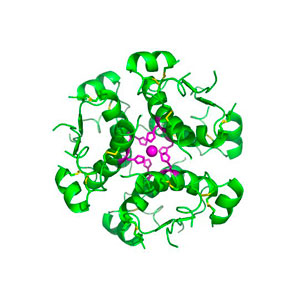(February 23, 2016)
With salivary insulin testing from Salimetrics’ SalivaLab, investigators studying diseases associated with adult and childhood obesity such as type II diabetes mellitus, heart disease, metabolic syndrome, and the biological pathways of insulin now have an easy way to get important biological data from more participants.
Today, researchers can fast-track sample collection and analysis for multi-analyte studies (such as insulin, cortisol, CRP, adiponectin, uric acid, and/or other biomarkers or SNPs of interest) using one, easy-to-collect saliva sample. With the addition of the Salivary Insulin Assay from Salimetrics’ SalivaLab, the relationship between insulin and other relevant biomarkers can be extensively studied through a non-invasive sample type.
Salivary insulin maintains a near-linear correlation to fasting serum levels and is a reliable surrogate to serum measures, with a 0.92 correlation (Fabre 2012). Previous research also shows a ~30 minute delay of salivary insulin over the spike in serum insulin levels during an oral glucose tolerance test (Fekete 1993). Therefore, salivary insulin presents a unique opportunity for the research community to survey overweight or obese pre-symptomatic individuals as a convenient means to monitor insulin levels prior to disease progression. Elevated fasting insulin is a hallmark of insulin resistance, which can supersede TIID disease onset by several years and may be used to justify changes in lifestyle to reduce disease risk (Hayashi 2013).
With the validation and availability of salivary insulin, Salimetrics now provides access to a key metabolic marker to enable a new era in obesity research. When compared to alternative biological specimen types, Salivary Bioscience researchers report higher levels of efficiency and increased participant recruitment and retention. Additionally, salivary bioscience adds unique benefits to studies with large populations, frequent sampling and monitoring regimens, child-centric participant groups, and/or studies collecting multiple biomarkers and/or genetic data from the same sample without requiring highly trained individuals, a phlebotomist or on-site emergency personnel to monitor participants for adverse reactions.
Obesity is a major risk factor for a wide variety of conditions including cardiovascular diseases, hypertension, certain cancers, and type 2 diabetes. A key factor in minimizing the impact of the obesity epidemic is hinged on reducing the prevalence of childhood obesity and monitoring overweight and at-risk individuals early on in the disease progression. For instance, more frequent testing of fasting salivary insulin may identify children that are developing insulin resistance and progressing toward type 2 diabetes. “Researchers are currently exploring salivary insulin as a specific type 2 diabetes pre-screening method, so that preventative treatment can start before permanent damage or obesity related comorbidities occur,” says Steve Granger, Ph.D., Salimetrics CSO. “However, more research is required to fully understand insulin’s pathophysiology and integrate salivary diagnostics at a clinical level.” Recent research has also explored the utility of salivary insulin as a biomarker for metabolic disease risk (Goodson 2016) and a large number of reviews and meta-analyses show that increased concentrations of insulin correlate with BMI status (Hartman 2016).
Researchers in a multitude of interdisciplinary research fields are rapidly adopting salivary bioscience for studies where participant compliance is paramount to collecting biologically relevant datasets. Today, Salimetrics offers research tools and support for more than 25 analytes and DNA-related analysis in saliva samples. Since 1999, Salimetrics has been leading the integration of salivary bioscience into research studies and diagnostic applications by focusing on better results through high-quality tools, methodologies, and protocols that maintain the integrity of saliva as a biological specimen. Researchers are encouraged to contact the experts at Salimetrics to explore options for integrating salivary bioscience into research and ensure they maintain the most scientifically credible data.
Still have questions? Contact Us for more details
References:
- Goodson, JM, et al. (2014). Metabolic Disease Risk in Children by Salivary Biomarker Analysis. PLoS One. 9(6): e98799.
- Fekete Z, et al. (1993). Salivary and plasma insulin levels in man. Biochem Mol Biol Int. 30(4): 623–629.
- Fabre B, et al. (2012). Measurement of fasting salivary insulin and its relationship with serum insulin in children. Endocr Connect. 1(2): 58–61.
- Hartman ML, et al. (2016). Unhealthy Phenotype as Indicated by Salivary Biomarkers: Glucose, Insulin, VEGF-A, and IL-12p70 in Obese Kuwaiti Adolescents. J Obes. 2016: 6860240.
- Ebbeling CB, et al. (2002). Childhood obesity: public-health crisis, common sense cure. Lancet. 360(9331):473-82.
- Zhao X, et al. (2016). Using Metabolomic Profiles as Biomarkers for Insulin Resistance in Childhood Obesity: A Systematic Review. J Diabetes Res. 2016:8160545.
- D’Adamo E, et al. (2011). Type 2 diabetes in youth: epidemiology and pathophysiology. Diabetes Care. 34 Suppl 2:S161-5.
- Hayashi T, et al. (2013). Patterns of Insulin Concentration During the OGTT Predict the Risk of Type 2 Diabetes in Japanese Americans. Diabetes. 36(5): 1229-1235.
About Salimetrics:
Salimetrics’ assay kits and CLIA-certified testing services are used to measure salivary analytes related to stress, behavior and development, inflammation, sleep, reproduction, health and immune function. Founded in 1998 by Douglas A. Granger, Ph.D., Salimetrics, LLC support CROs, pharmaceuticals, academic researchers and the immunodiagnostic industry around the world with innovative immunoassay products, non-invasive saliva collection methods, and laboratory testing services.
Read this article on PR Web
 Contact: Salimetrics (USA)
Contact: Salimetrics (USA)
